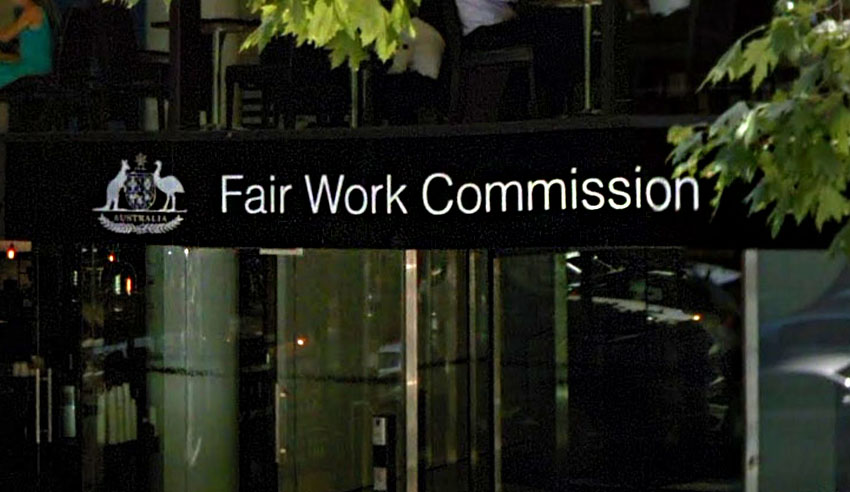Practitioners and advocates alike have identified family and domestic violence leave as a key reform for the new government.

Other priorities of the Australian Women Lawyers include implementing in full the 55 recommendations of the Respect@Work Report, support for more accessible and affordable childcare, the creation of an effective federal Independent Commission Against Corruption, greater recognition of First Nations Australians, including full implementation of the Uluru Statement from the Heart and greater focus on addressing climate change and committing to net zero emissions.
Family and domestic violence leave is a key platform of the Australian Women Lawyers, including the provision of up to 10 days’ leave entitlement.
Lawyers Weekly spoke with Courtney Bowie, who is an advocate for women about the reforms. Bowie is chief executive of Her Lawyer, a law firm for ambitious women in business. Importantly, she said that any future campaign to assist women should be “targeted and strategic” so that women “know their rights and where to get help”.
Similarly, measures to improve education and culture around family and domestic violence remain important. Ms Bowie said that “one of the biggest barriers is cultural and behavioral change. Early intervention is important. Sadly, I think the cultural issue is a big one. While there is a lot of rhetoric about raising awareness about and actively working to eradicate family and domestic violence, there is a huge education piece here that needs to be addressed urgently.”
In general, Ms Bowie stated that “the change in government marks a turning point in how women are considered by policymakers. The Liberal government was often criticized for failure to consider policy items from a female lens.”
Ms Bowie stated that “safety is a fundamental human right. Without safety, women’s opportunities for growth are severely limited. The family and domestic violence reforms will improve women’s safety by helping more women to escape and remain out of violent relationships”.
In the context of the economy, Ms Bowie stated that “my expectation is that the paid FDV leave scheme will improve employment participation rates and remove some of the hurdles to growth in women’s careers”. Family and domestic violence is estimated to cost the Australian economy $26 billion a year and, for employers, up to $2 billion a year, according to the Australian Women Lawyers.
Ms Bowie said: “I look forward to a future where women’s safety is guaranteed, and the government can dedicate further resources to increasing women’s opportunities for growth in other areas including: addressing the wage and superannuation gaps, gender discrimination in the workplace and better health outcomes.”
Legal practitioners will be better able to assist their clients to access justice. Bowie said that “the government’s FDV reforms may help, but it will also come down to lawyers themselves to identify and overcome barriers to access. Lawyers have unprecedented access to techniques, tools and methodologies to help them do so – there is certainly lots of opportunity for the legal industry to make a difference for victims and survivors.”
Michael Byrnes, partner at Swaab, said that “the new government is likely to introduce measures that will assist women”. Byrnes said that “the new government would be looking to introduce policies to assist women to enter the workforce, re-enter the workforce and be retained so that women can participate more fully”.
Mr Byrnes said that family and domestic violence leave is a major significant advance in society where it is unfortunately prevalent. He said that “it would provide relevant support to women. Furthermore, it would provide a broader notion of support for women to more fully participate in the workforce and enable such women to escape from their situation.”
He confirmed that family and domestic violence leave would “assist and enable employers to retain women who find themselves in such circumstances. This right, in terms of what form it takes, would enable a situation where employment is maintained which is critical in the transition out of such a situation.”
Mr Byrnes said that “the introduction of family and domestic violence leave would give employees a workplace right. If an employer treats an employee adversely in relation to such rights, it gives the employee an avenue for legal action to deal with the situation. The reforms give the employee advocates or representatives a cause of action or basis to take action against the employer. By giving employees leave itself, it creates a workplace right. If an employee denies workplace rights or treats them detrimentally, that will be a cause of action, for which the employee will have that right.”
He suggested that the broader eradication of family and domestic violence was possible. He said, “it is a broad societal problem which requires a multifaceted approach. The new government promises to look to amend the Fair Work Act to introduce family and domestic violence consistent with the Fair Work Commission. The amendment would extend paid family and domestic violence leave to all employees. The Fair Work Commission, however, refers to employees covered by all modern awards.”
Mr Byrnes finished the interview with some suggestions about any new campaign to raise awareness of family and domestic violence leave. He said that “at individual workplaces, there will be the need for confidentiality or sensitivity. In larger workplaces, employees are more likely to avail themselves of family and domestic leave but smaller businesses may feel uncomfortable about it.”